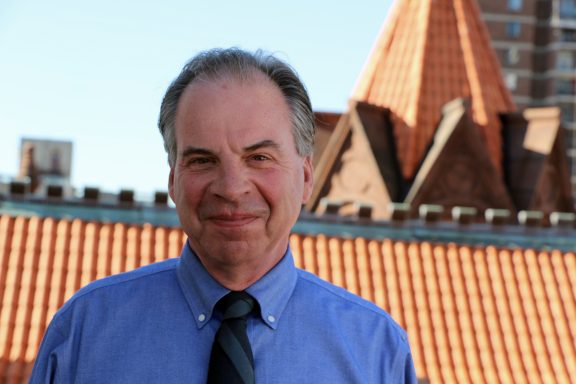Tony Hannigan, LMSW, is the Chief Executive Officer and President of Center for Urban Community Services. From 1983-1993, Tony was primarily responsible for the growth of Columbia University Community Services, an interdisciplinary project that developed various neighborhood-based programs for homeless and low income individuals. During this time, he was also a Senior Staff Associate and faculty member at the Columbia University School of Social Work. In 1993, Tony led the spin-off of CUCS from Columbia University. Today, CUCS works with 50,000 people annually in New York City and nationally.
Why Social Work?
I became a social worker because I was bothered by social inequities and injustices and wanted to make a difference. Though some use social work as a pathway to become a therapist, the origins and principal focus of social work are rooted in fighting poverty, and it is the only profession exclusively dedicated to this cause.
Social workers seek social justice, social change, and the empowerment of the individual. Sometimes we are able to accomplish these in large and small ways, but often our days are defined by simply helping others. Not all professions can offer such meaningful challenges and personal satisfaction. Social workers also generally have many options to specialize in one or more of the many fields common to social worker practice, such as health and mental health, geriatrics, and family and child welfare, and we can do this as practitioners or as administrators and managers. The profession is filled with opportunities for growth and reward.
What is different in the field today as opposed to when you began working in mental health and homelessness?
When I began working in the field in the early 1980’s, there were very few resources available to social workers interested in addressing homelessness. There was no supportive housing, no shelters that provided mental health or specialized treatment services, no transitional residences or safe havens, and street outreach programs focused on making contact with homeless people, providing sandwiches, transportation and good will.
Today, we have all of these resources and much more refined and targeted services for homeless individuals and families. Unfortunately, the numbers of homeless people in shelters in NYC has more than quadrupled since those early years, despite our being better prepared. Nonetheless, the numbers would be far worse if we had not persevered and accomplished so much over the past several decades.
CUCS invests significantly in developing social work professionals, both internally and through the CUCS Institute’s trainings. What drove – and continues to drive – this organizational philosophy?
In its earliest iteration, CUCS was a curriculum development and training “project” of the Columbia University School of Social Work (CUSSW). With a grant from the NYS Department of Social Services, CUCS provided training to volunteers working in faith-based shelters and soup kitchens. Being part of CUSSW, we also had a student unit of 8-10 graduate students each year.
It is that genesis that both influenced the leadership of CUCS about the importance of quality training as well as how to do it. When we spun off from the university, we expanded our role as trainers into working with staffs from non-profits in NYC and nationally, and we continue to have a well-oiled student unit of 15 more graduate social work students each year. While both of these activities are good for CUCS and our staff, we feel good about helping to enrich services that are being provided to low-income and homeless people.
What advice do you have for a young professional today?
Much of what social workers face seems insurmountable, yet it is these challenges that are frequently the most important and intellectually absorbing. If an issue inspires you, go for it.

